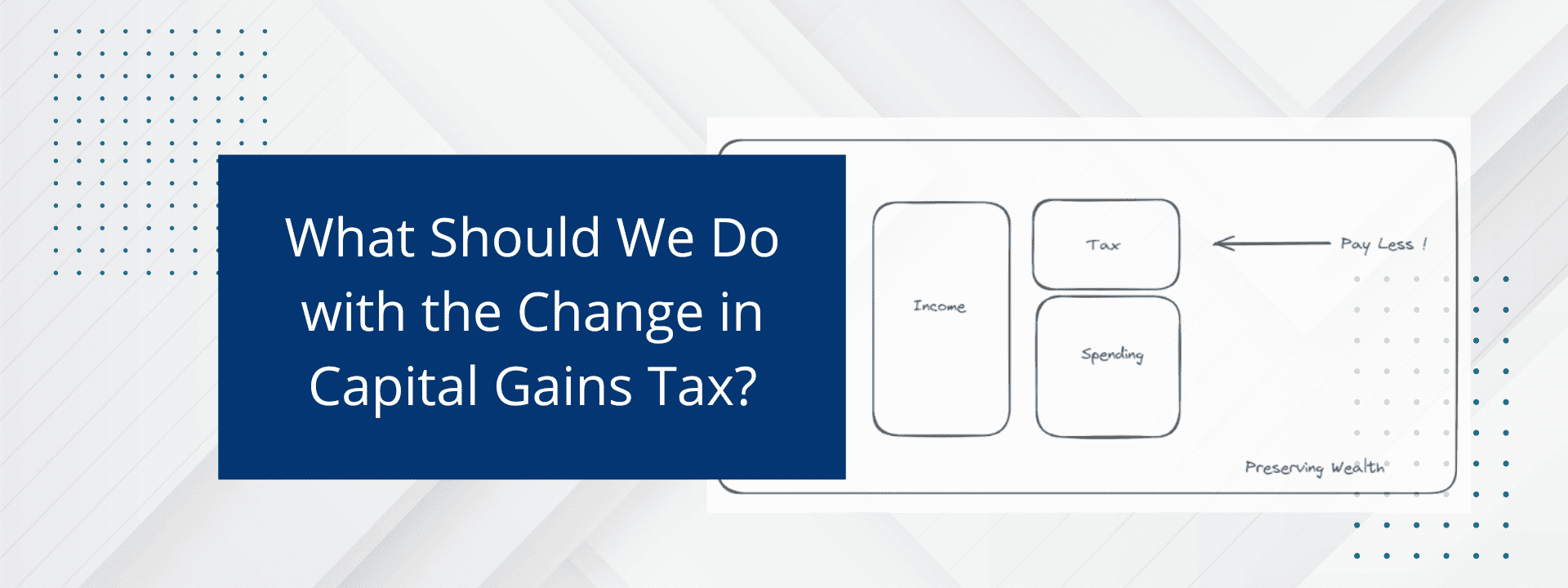For your FREE Copy of Preserving Wealth, CLICK HERE
The latest budget has proposed an increase in the capital gains inclusion rate for individuals, corporations, and trusts starting June 25, 2024. However, this part of the legislation is being introduced separately from the main bill. Should you do anything before then? Let’s break down the changes and discuss your options.
Changes to Capital Gains Inclusion Rates
Individuals:
For individuals, the proposed inclusion rate for capital gains is:
- Up to $250,000 in capital gains annually: Inclusion rate remains at 50%.
- Over $250,000 in capital gains annually: Inclusion rate increases to 66.67%.
In Ontario, this shift means that the effective tax rate for capital gains over $250,000 will rise from 26.76% to about 35.68%, representing a 34% increase in tax.
This change can impact various asset types, including:
- Non-registered investments
- Vacation Properties
- Rental Properties
Canadian-Controlled Private Companies (CCPC)
For Canadian-Controlled Private Companies (CCPC) and trusts, the inclusion rate will increase to 66.67% for all capital gains. In Ontario, this adjustment means the effective tax rate for capital gains will rise from 25.1% to 33.63%. This could affect assets such as:
- Passive investments (stocks, mutual funds, ETFs)
- Real properties
Understanding Capital Gains
A capital gain is the profit/gain made when an asset is sold for more than its adjusted cost base (ACB). For example, if you sell an investment for $100,000 with an ACB of $50,000, the capital gain is $50,000. Your financial advisor or accountant should track your ACB for you.
What Should You Do?
Before making any drastic decisions, it’s essential to understand how these changes will be implemented. Here’s what to consider:
- Wait for Legislation: Don’t rush into any decisions until the legislation is finalized and we understand its full impact. Making a poor investment decision to save on taxes can have long-term consequences.
- Assess Your Situation: If you were already planning to sell an asset, consider doing so before June 25, 2024. However, ensure this aligns with your investment goals and isn’t just a tax-driven decision. For instance, selling a vacation property at below market value just to avoid higher taxes may not be wise.
- Consult Professionals: Speak with your accountant and Certified Financial Planner® Professional to evaluate your options. They can help you determine the best course of action and any adjustments needed once the changes are in effect.
Reminder
Remember, for individuals, the first $250,000 in capital gains each year remains at the current inclusion rate. For CCPCs, if you sell now, pay the tax, and reinvest, consider the breakeven period—how long it will take for the after-tax value to be equivalent under the new rates.
Summary
These proposed changes to the capital gains inclusion rate could have significant implications. Before making any moves, ensure you have a clear understanding of the legislation and how it affects your financial strategy. Consulting with your financial advisor and accountant is the best way to navigate these changes effectively, and to set a plan of action.
What To Do Next
Are You on Track with Your Retirement Strategy? FIND OUT TODAY!
For more information, refer to Preserving Wealth: The Next Generation – The definitive guide to protecting, investing, and transferring Wealth by Jack Lumsden, MBA, CFP® or schedule a call with Jack at 905-332-5503
Jack Lumsden is a Financial Advisor with Assante Financial Management Ltd. The opinions expressed are those of the author and not necessarily those of Assante Financial Management Ltd. Please contact him at 905.332.5503 or visit www.jacklumsden.com to discuss your circumstances before acting on the information above.

